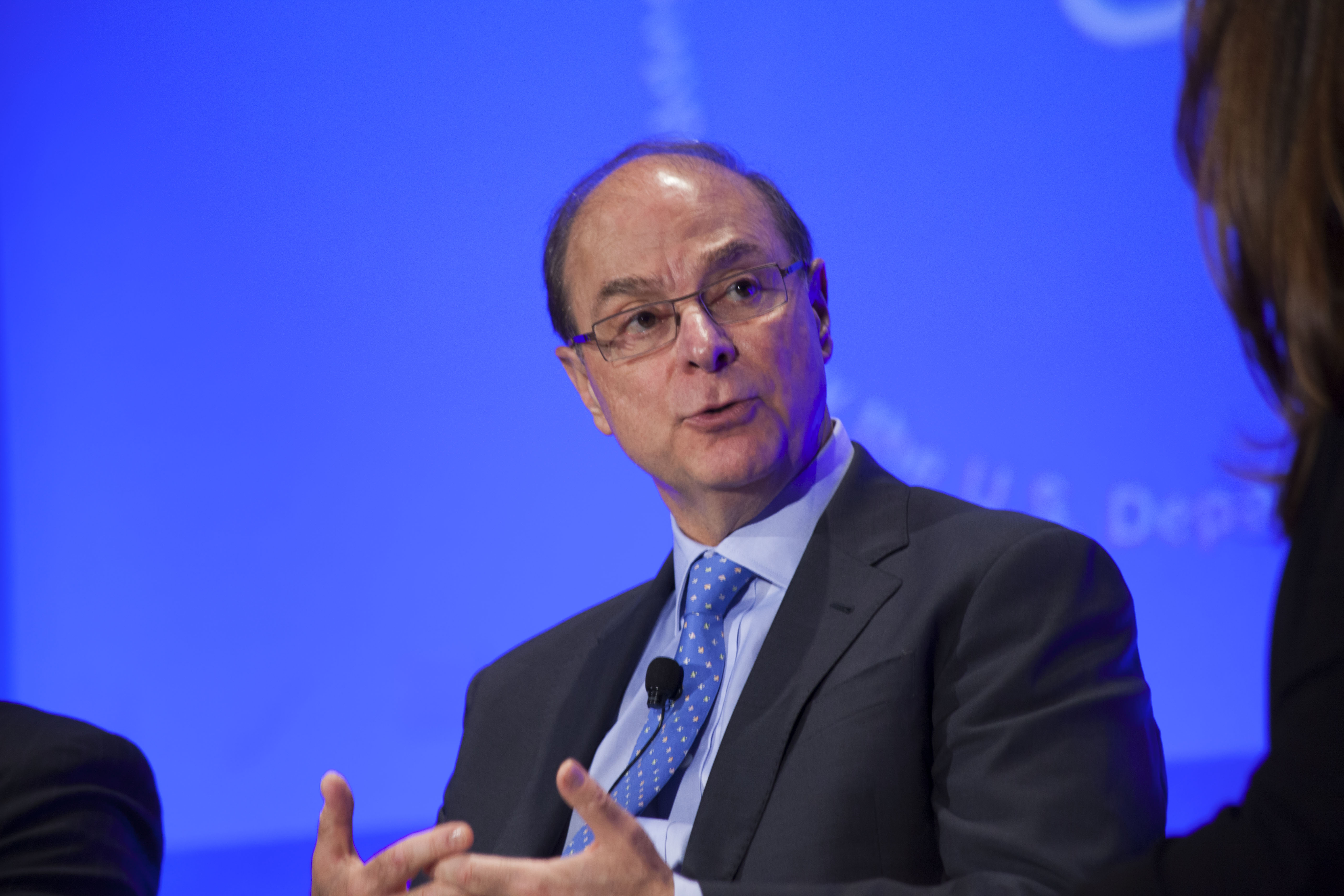Amid fiery student and adjunct faculty protests, President Joseph Aoun delivered his annual State of the University address on Wednesday, October 28, at 12 p.m. to hundreds packed in Cabot Center.
As a Northeastern student, I struggle with contradictory feelings of pride and shame. On one hand, I am proud to be a husky. I love my university. I love living in Boston, and I am thankful for all the wonderful opportunities that Northeastern has provided me– from classes, to studying abroad on dialogues of civilization, to co-op. Still, I am ashamed. I am ashamed that Northeastern administration, despite proudly trumpeting its leadership against climate change, has refused to divest from fossil fuel industries, even though a student government referendum proved it’s what the students favor. I am ashamed that Northeastern administration does not value its adjunct professors enough to pay them above poverty wages, while President Aoun earned a salary of $1.1 million in 2014. In fact, Aoun is the 19th highest paid university president in the country.[1]
After walking past the passionate protests of DivestNU and the Adjunct Faculty Union to the State of the University address in Solomon Court, I was unsettled by the excessive and showy nature of the university event. It felt more like a sports game than anything else, not only because of its location on a basketball court, but because of its elaborate stage, flashy multicolored lights, blasting high-energy music, and high-quality multimedia presentations. Uncomfortably, I observed a stark juxtaposition: students and faculty outside the doors crying out that the university was committing injustices, while the dazzling displays inside tried to comfort me into thinking the university was just fine the way it was.
From the moment Aoun began his address, it was evident that this State of the University was an opportunity for the administration to pat itself on the back and show off its accomplishments instead of taking an honest look at the progress of the university and how it could improve in the future.
Aoun reported the four core beliefs of the university as experiential education, innovative education, global education, and impactful research. He highlighted the expanding co-op program, the new global officers program, and PhD research focusing on solving global challenges. From 2006-2014, Northeastern students were in 131 different countries, said Aoun.
While I have no problem with Aoun celebrating the accomplishments of Northeastern, the university’s core beliefs seemed ironic. He emphasized three different types of education as invaluable to our university, but is unwilling to properly compensate adjunct professors who represent over 50% of Northeastern’s teaching staff.[2] Aoun wants a stronger PhD program that conducts important research that will solve worldly issues, but avoids taking on the greatest threat to our planet, climate change, by divesting from fossil fuel industries.
After Aoun, Provost James Bean talked about designing new academic and long-range plans. An academic plan would be what a 2025 academic model would look like, while a long-range plan is how we would get there, said Bean. Bean encouraged students to join the conversation to generate ideas for how the university should operate in the future.
Students in the DivestNU movement, however, already tried to be a part of the conversation to improve the university, took all the proper channels to join the conversation, and were rejected. In spring 2014, DivestNU sponsored a referendum in the student government elections to divest Northeastern endowments from fossil fuel industries, and 75% of respondents voted in favor of divesting.[3] Still, the administration has not complied or put forward a clear plan for doing so.
The most laughably ironic part of it all, however, was the two minute video that followed Bean’s speech. In the elaborate cartoon, a female character named Andrea dreams of solving climate change. She takes a variety of classes on Northeastern’s campus and studies abroad in Singapore, London, Vietnam, and South Africa. Ultimately, Andrea develops an idea for environmentally friendly water purification, pitches the idea at Northeastern’s Silicon Valley campus, and graduates in three years. She serves as a representation of the ideal Northeastern student.
But while this cartoon video played, the real-life Northeastern students who work to end climate change were being dismissed by administration.
Carmen Sceppa, the chair for the senate agenda committee, spoke next on behalf of the faculty. It was clear, however, that she was not actually speaking on behalf of all faculty members. She proudly credited Northeastern with having 502 tenure and tenure-track faculty members since 2006. These faculty members conduct cutting edge research and provide invaluable mentorship and education to our students, said Sceppa.
“We ask President Aoun to continue to empower faculty as a true partner,” she said.
The Adjunct Faculty Union, however, would likely disagree. Adjunct professors do not even receive professional recognition, as their names are left off of faculty lists. In addition, they are compensated on a per-class basis, without healthcare or sick days and without consideration of the hours spent preparing for class, grading papers, and meeting with students. Adjunct professors also have few opportunities for advancement or pay increase and have poor job security, as they often do not know if they will be teaching classes next semester.[4]
“Do you care about instruction at Northeastern? Do you believe that adjunct faculty are simply disposable, cheap academic labor that helps the university subsidize other priorities?” read a handout called “5 Questions for President Aoun” distributed by adjunct faculty protesters. “If not, why are they paid so little, provided no benefits, and essentially fired after each semester?”
After Sceppa, Student Government Association President Eric Tyler took the stage. Tyler is in a unique position because he serves as a vital link between the needs of the student body and the administration. As SGA president, Tyler has a duty to the students, but a vested interest in upholding amicable relations with administration. This inevitably opens him up to criticism by both sides.
Tyler emphasized that Northeastern students, even after graduation, have a responsibility to shape the university for future huskies. He was the only university address speaker who attempted to mention that there is significant student and faculty dissatisfaction on several key issues.
“If you feel a need for change…attend town hall meetings to speak out,” said Tyler.
Finally, Diane MacGillivray, the senior vice president for university advancement, announced that Northeastern’s Empower fundraising campaign had already reached its goal of $1 billion– a goal that was set only two years ago to be reached by 2017. The campaign received $81.8 million of those funds in the 2014-2015 school year from new gifts and pledges. $500 million is set to go toward philanthropy, while the other $500 million is for research.
MacGillivray’s announcement was probably the biggest slap in the face to the protesters outside, both of whom are fighting the allotment of Northeastern funds at the heart of their issues.
“There’s a lot left to do…Our progress to date is great, but it isn’t enough,” said MacGillivray.
With this, MacGillivray launched Northeastern’s new fundraising goal of $1.25 billion by 2017, $625 million of which would go to philanthropy and $625 million of which would go to partnerships from government and industry, which she said was “necessary to fuel this academic plan.”
Aoun returned to the stage with all the speakers by his side, with a final message that Northeastern was “unique” and that we have a destiny to be the indispensable university of our time.
“The future is in our hands,” said Aoun.
For the Northeastern students who want to pursue environmental justice and for the Northeastern adjunct professors who want livable wages and job security, the future seems bleak. If Aoun truly wants our university to be a world leader, then we need to do what is right. We must divest from fossil fuel industries and properly compensate adjunct professors.
References:
[1] Schworm, Peter. “Pay climbs for private colleges’ presidents.” The Boston Globe, December 7, 2014. https://www.bostonglobe.com/metro/2014/12/07/salaries-for-college-presidents-continues-rise/IBTppB13TqxZhROBEk5eeO/story.html
[2] “About Our Union.” Northeastern University Adjunct Faculty Union, October 2015. http://www.nuadjuncts.org/#!about/cjg9
[3] Scallon, Mara. “Letter: NU needs to divest from fossil fuel industry.” The Huntington News, October 22, 2015. http://huntnewsnu.com/2015/10/letter-nu-needs-to-divest-from-fossil-fuel-industry/#respond
[4] “Issues Around Adjunct Teaching.” Northeastern University Adjunct Faculty Union, October 2015. http://www.nuadjuncts.org/#!about/cjg9



